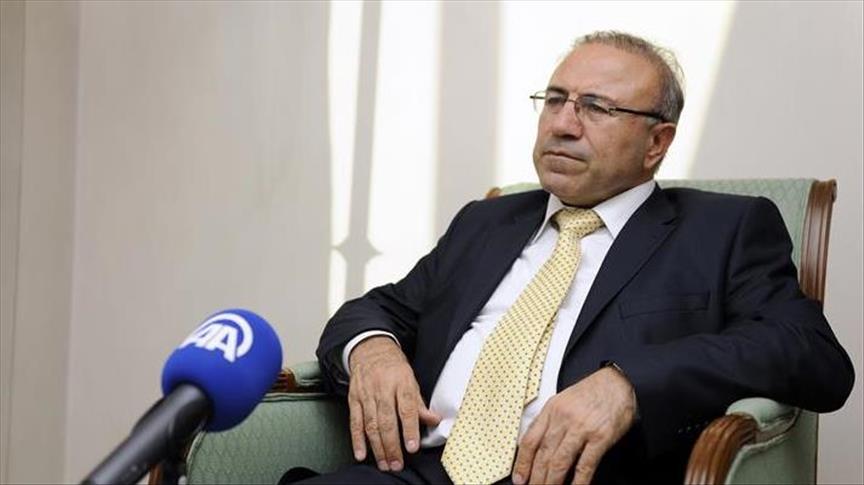-
Tips for becoming a good boxer - November 6, 2020
-
7 expert tips for making your hens night a memorable one - November 6, 2020
-
5 reasons to host your Christmas party on a cruise boat - November 6, 2020
-
What to do when you’re charged with a crime - November 6, 2020
-
Should you get one or multiple dogs? Here’s all you need to know - November 3, 2020
-
A Guide: How to Build Your Very Own Magic Mirror - February 14, 2019
-
Our Top Inspirational Baseball Stars - November 24, 2018
-
Five Tech Tools That Will Help You Turn Your Blog into a Business - November 24, 2018
-
How to Indulge on Vacation without Expanding Your Waist - November 9, 2018
-
5 Strategies for Businesses to Appeal to Today’s Increasingly Mobile-Crazed Customers - November 9, 2018
Syrian Kurds want a federal system under Damascus
T he Syrian Kurdish Democratic Union Party (PYD) and several allied groups on Thursday voted to approve the establishment of a federal system in the northern, Kurdish-controlled part of the country.
Advertisement
Nawaf Khalil of the Democratic Union Party said his group is not lobbying for a Kurdish region but rather an inclusive area with representation for Turkmen, Arabs and Kurds in northern Syria.
“Any declaration related to federation is worthless and will have no legal, political, social or economic impact”, Syria’s official news agency SANA quoted an unnamed official at the Foreign Ministry as saying.
The Kurds proclaimed their state within Syria will be named Rojava and officials said talks within the Kurdish tribes of the region would soon yield a plan for autonomous government of the area.
“We don’t support self-ruled, semiautonomous zones inside Syria”, said State Department spokesman John Kirby on March 17.
The talks, aimed at finding a political solution to end the protracted and bloody conflict, are not being attended by officials from the powerful Kurdish Democratic Party (PYD), reportedly at the request of Turkey, which considers the Kurdish PKK a terrorist group.
But the Moscow Group, a Russia-approved umbrella organization for officially tolerated opposition groups, said it was working to “lift the embargo” against bringing in Kurdish delegates, while a member of the Syrian government delegation told AFP the Kurds would be “invited to the talks in the next stage”.
Russia’s Defence Ministry on Wednesday reported 10 new ceasefire violations and the Kurds, after being excluded from the talks in Geneva, appeared to be taking matters into their own hands by drawing up plans to combine three Kurdish-led areas of northern Syrian into a federal arrangement.
However, he said, it is impossible for Syria to “go back to the old Syria”.
Ja’afari also said Putin’s announcement of a partial withdrawal of his armed forces on Monday had come as no surprise to the Syrian government, describing it as “common decision, taken both by President Putin and President Assad” .
“The federal system would be the way forward if people would accept it”, Landis said, “But they won’t because they don’t like each other”. It is true that the global concept of national borders has been altered significantly since the 2003 US invasion of Iraq by, first, the country’s de facto breakup and, second, the reconfiguration of Syria due to civil war.
Press TV: Opposition to the decision by Kurds in northern Syria has been nearly quick and unanimous.
The Kurds have been instrumental in the battle against the so-called Islamic State militant group.
Efrin remains an enclave, with Islamic State still controlling territory separating it from the other Kurdish-controlled areas.
Meanwhile, the United Nations envoy for Syria emerged from the fourth day of peace talks in Geneva to tell reporters that significant gaps remain between the two sides.
Haytham Manaa, a representative of Syria’s opposition delegation, speaks during a news conference after his meeting with Arab League Secretary General Nabil Alaraby, in Cairo May 28, 2012.
Advertisement
The statement underlined Russia’s intention to maintain a strong military presence in Syria to keep its gains after a five-and-a-half-month air campaign that has helped turn the tide of war and allowed Assad’s forces to make significant advances.





























